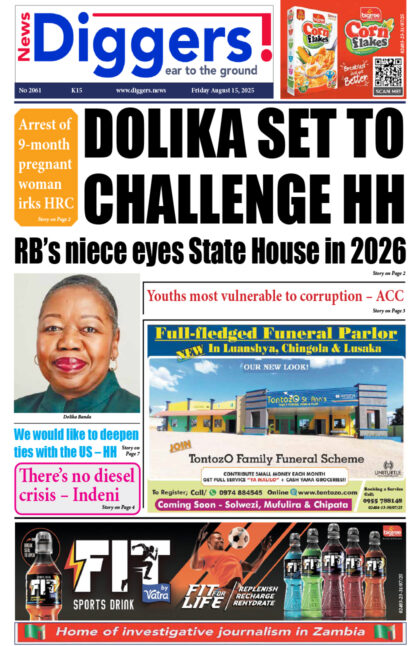South African Revenue Service (SARS) acting spokesperson Sicelo Mkosi says the Service does not usually subject transit containers, including trucks containing Mukula logs, to inspection.
And Zambia Revenue Authority (ZRA) Corporate Communications Manager Topsy Sikalinda says the Authority does not have statistics on the number of illegal Mukula logs that have been intercepted since 2016.
Last week, Transparency International called on the South African government to investigate their end of the suspicious transit route in order to stop the flow of Zambian Mukula from the port of Durban.
But in response to a press query, Friday, Mkosi said transit cargo into neighbouring countries was generally not selected for inspection in the interest of facilitating trade
“Mukula wood is now included in the Convention on International Trade in Endangered Species of Wild Fauna and Flora (CITES) list. This means that all customs declarations, including Mukula wood, will be subjected to the necessary customs controls in the event that the goods are declared incorrectly. Transit cargo into the neighbouring countries is generally not selected for inspection in the interest of facilitating trade. However, in instances where a risk has been identified, customs will intervene in terms of an enforcement action,” said Mkosi.
“Further, note that the SARS Customs is participating in Operation Sesha (derived from Seshachalam Forest). This programme is an international operation endorsed by the World Customs Organization (WCO) aimed at curbing the cross-border trafficking of protected flora. Operation Sesha is specifically tackling the illegal timber trade. The primary role of SARS Customs is to protect our borders and facilitate trade. We remain committed to that.”
And in an interview, Sikalinda said all confiscated Mukula Rosewood was handed over to the State.
When asked if there was an export of Mukula logs recently, Sikalinda said he did not have the details.
“I do not have details, I would lie,” Sikalinda said.
When asked how much Mukula the ZRA had intercepted since 2016, Sikalinda said he did not have the statistics.
“We don’t have those statistics because all operations are done with the joint-security wings, then immediately, we hand over,” Sikalinda responded.
But when pressed further to explain what happens to the confiscated Mukula intercepted by ZRA, Sikalinda insisted that the seized cargo was handed over to the State.
“We handed over publicly to government, to the joint security wings. If you remember, those handover ceremonies…the other year, when we were having public handovers. Those that we had intercepted on our own are the ones we handed over through the handover ceremonies we had,” Sikalinda replied.
When asked how much revenue had been lost through smuggling of Mukula, Sikalinda said ZAFFICO was the best State entity suited to tackle the question.
And when asked what ZRA’s position was on the research and revelation that China recorded about US $100 million worth of imported Mukula from Zambia, while the country only recorded a paltry US $900,000 in exported Mukula in 2016, Sikalinda said the joint security wings were in a better position to respond.
“What you need to understand is that the role of ZRA is to collect tax so what happens is that when there is a matter of special interest, there is a relevant wing that is usually appointed from the security wings to take the lead. For instance, mealie meal, the Zambia National Service (ZNS) has taken the lead. Similar to Mukula, we had a joint security wing taking the lead so they would be better placed to comment on that one,” replied Sikalinda.
























